It is quite common to hear about sports performance. When I decided to take on the personal challenge of doing the GR20, the mythical long-distance trail crossing Corsica over 180 km, I realized that this notion was often linked to numerical values. How much difference in altitude ? How many days to do it ? How much time spent on each stage?
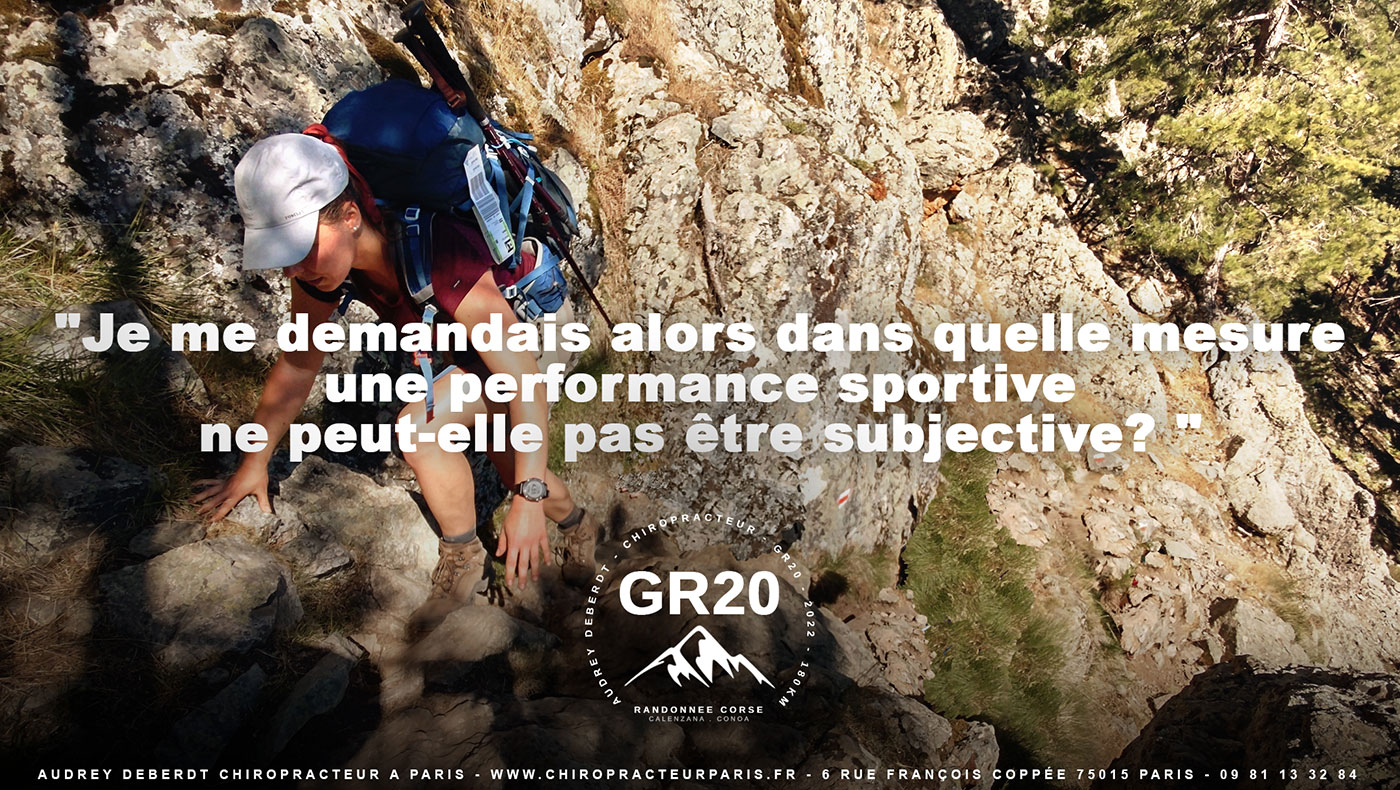
I was wondering to what extent a sports performance can't be subjective? Couldn't it respond to the accomplishment of a personal sporting challenge that we give ourselves and for which we try to surpass ourselves and not to facts?
Once this goal was established, I began my preparation. I wanted to be up to the challenge of this hike. I quickly realized that with the momentum of motivation that comes with making this project a reality, it's easy to get scattered and want to do "too much".
So I tried to establish a program that would allow me to frame this energy for my workouts. I placed particular importance on reproducing the physical and mental conditions as much as possible. The objective was to prepare the body as much as possible so that it could adapt very quickly when the time came. I started 3 weekly sports sessions over several months: this training was comparable to a marathon and not to a sprint. The organism is capable of evolving very quickly, but in order for the adaptation to take place correctly, neurological patterns must be repeated regularly so that they can be integrated.
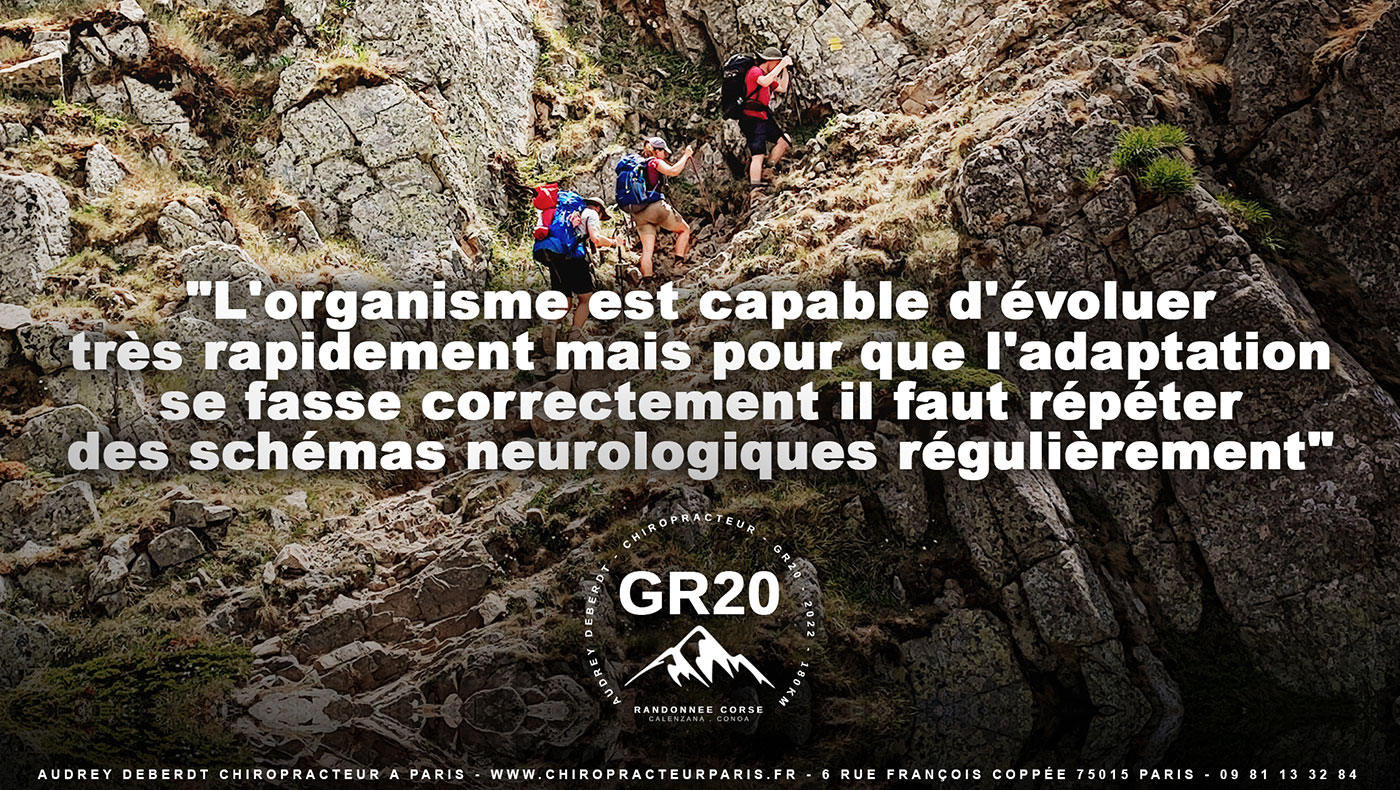
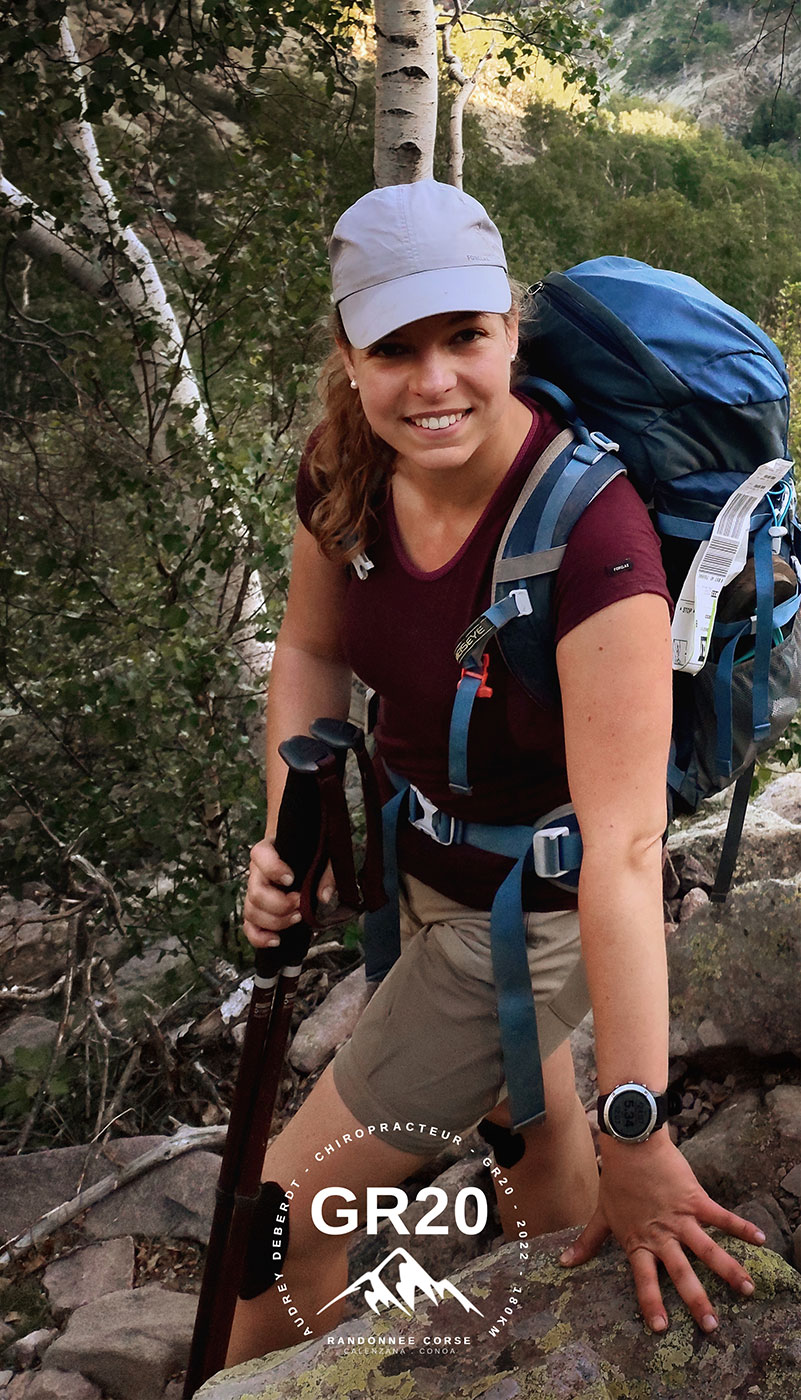
The days go by, the pressure rises and the enthusiasm grows. The D-day is here, heading for Corsica. I am confident, I know that I have prepared my body as much as possible and I want to believe that this experience will end with a great achievement.
Once there, I quickly realize that it is still a question of adaptation.
Within a day I notice the stiffness of my legs at first, a little breathlessness and the heat that rises, and finally the relief. After about an hour I have this feeling of renewed energy and I take advantage of it to appreciate the moment even more.
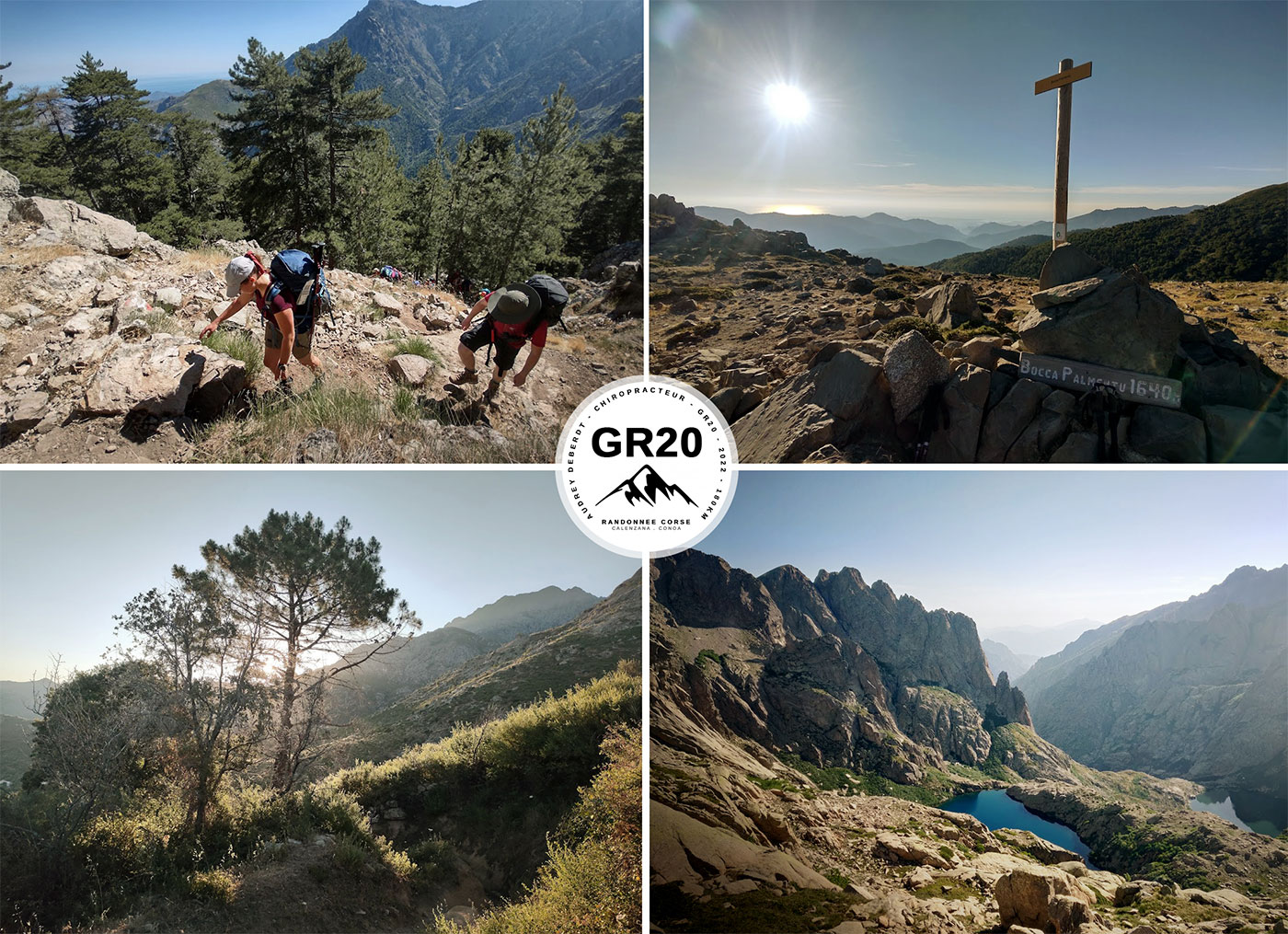
I feel grateful that my body is able to call upon the elements necessary to adapt to a multitude of circumstances.
As the days go by, I refine my listening, I am more attentive to the variations of energy. The weight of my bag no longer weighs on my shoulders: my body has integrated it into my balance. A phenomenon of disconnection/connection then takes place: the mental disconnection that is omnipresent in daily life gives way to a connection with my environment and myself. This allowed me to live this experience in a much richer way than I imagined and in the best possible conditions.
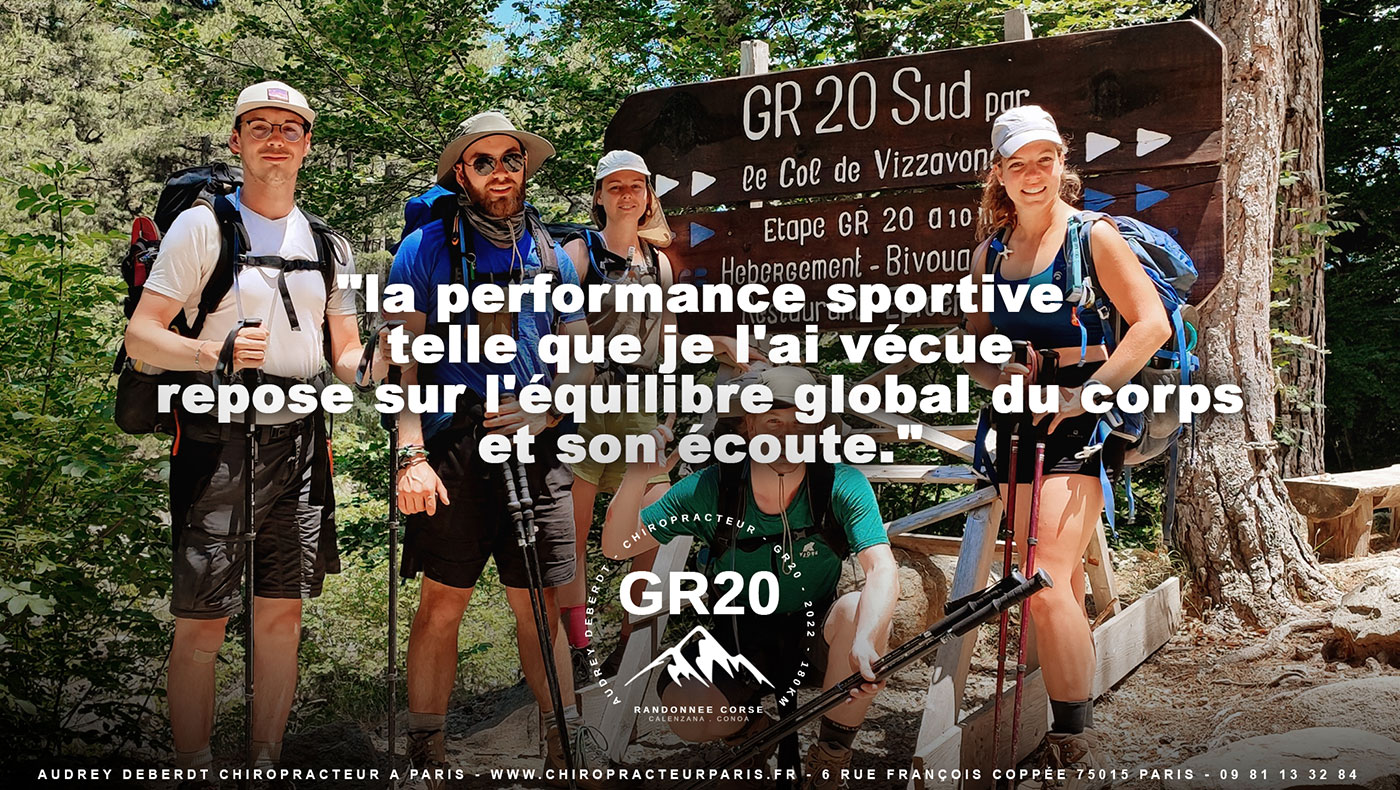
Back after this incredible adventure, it took me a few days to realize the personal accomplishment that had just been achieved. I also had the answer to my questioning: sports performance as I experienced it is based on the global balance of the body and its listening.
Chiropractic seeks to achieve this same globality for its patients. I am fortunate enough to be in this profession and to have been able to adapt during my training sessions or during efforts. The spine is the pillar of the body both mechanically and neurologically, its optimal functioning ensures stability and balance. These two faculties are essential to be able to recruit the different structures to their maximum potential.
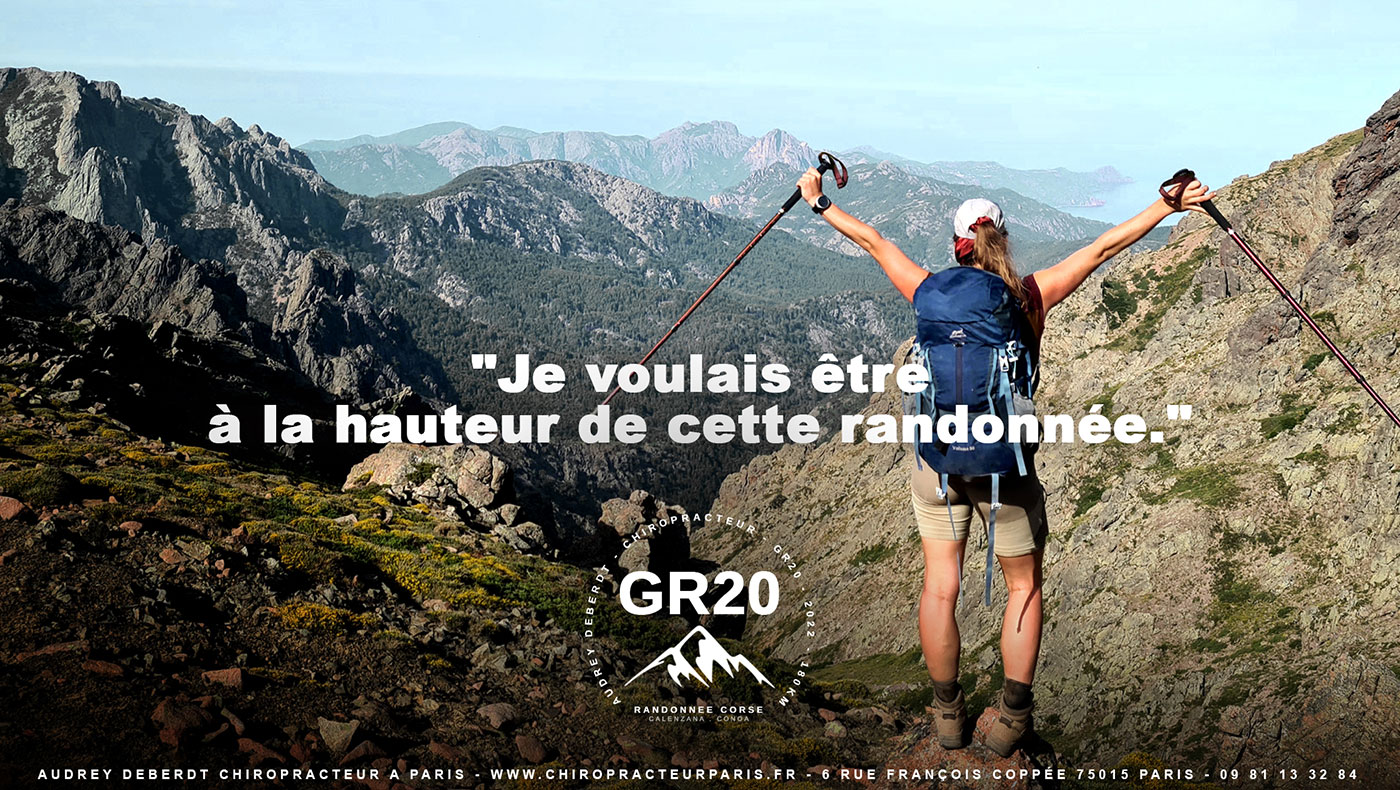
The success of the sporting challenge does not only lie in the adaptation of the organism but also in the physical factors such as the choice of shoes, the adjustment of the backpack, learning to use the walking sticks correctly etc. All of these elements are based on advice related to posture.
Today I want to exchange the roles: reduce the mentalization to leave more room for the feeling and the observation. One should not dominate the other. A careful balance must be made.
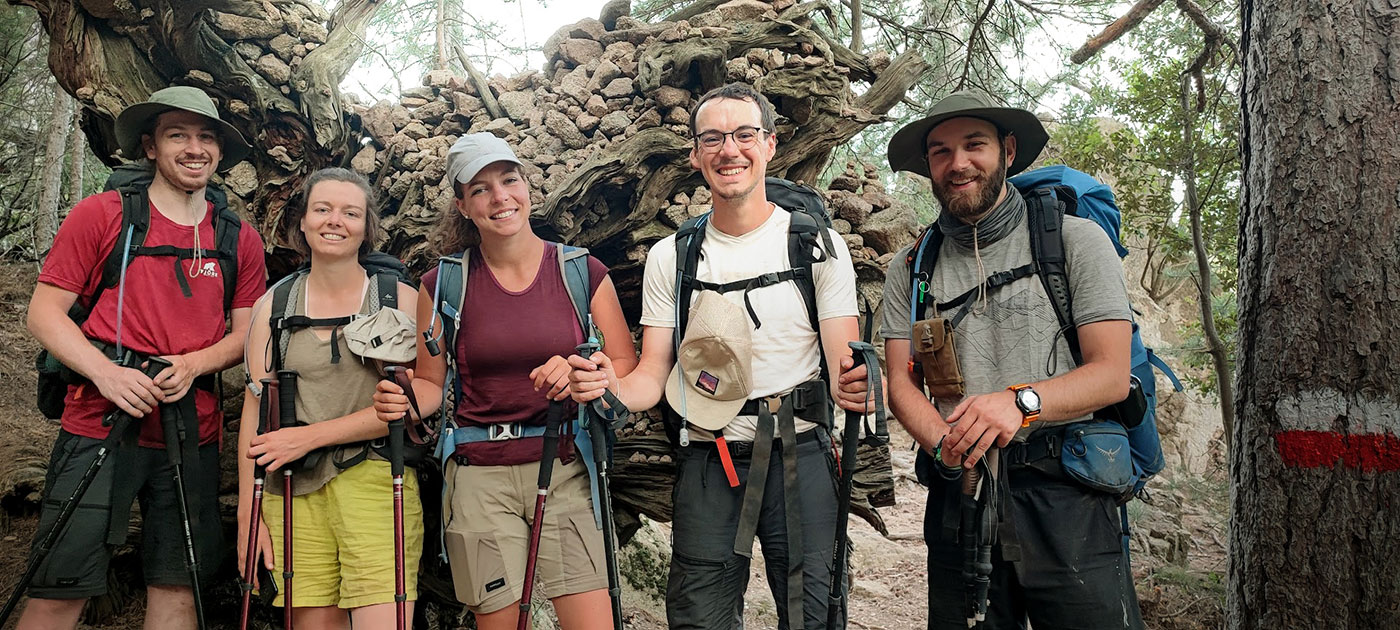
"The secrets of good breathing
Breathing is worked on daily, it helps to relax and also to benefit from the
of our organism properly oxygenated during the different phases of the
sports activities.

